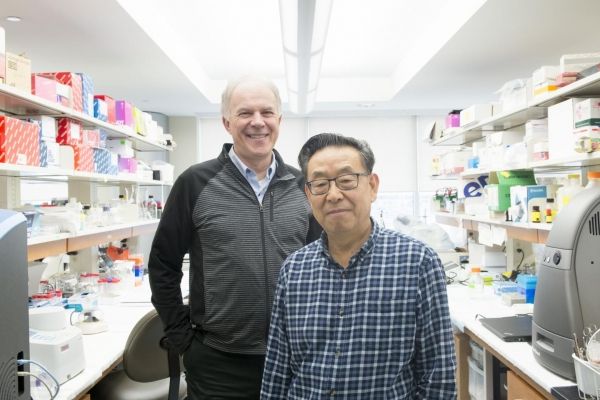Researchers at Western University and Lawson Health Research Institute are using tobacco plants as ‘green bioreactors’ to produce an anti-inflammatory protein with powerful therapeutic potential.
The plants are being used to produce large quantities of a human protein called Interleukin 37, or IL-37. The protein is naturally produced in the human kidney in very small quantities and has powerful anti-inflammatory and immune-suppressing properties, providing potential for treating a number of inflammatory and autoimmune disorders like type 2 diabetes, stroke, dementia and arthritis.
“This protein is a master regulator of inflammation in the body, and has been shown in pre-clinical models to be effective in treating a whole host of diseases,” said Dr. Tony Jevnikar, Professor at Western’s Schulich School of Medicine & Dentistry and Scientist at Lawson. “The human kidney produces IL-37, but not nearly enough to get us out of an inflammation injury.”
And while showing promise in animal models, IL-37’s use clinically has been limited because of the inability to produce it in large quantities at a price that is feasible clinically. Currently, it can be made in very small amounts using the bacteria E. coli, but at a very high cost.
Read more at University of Western Ontario
Image: Researchers at Western University and Lawson Health Research Institute are using tobacco plants as 'green bioreactors' to produce an anti-inflammatory protein with powerful therapeutic potential. (Credit: Schulich Medicine & Dentistry, Western University)


